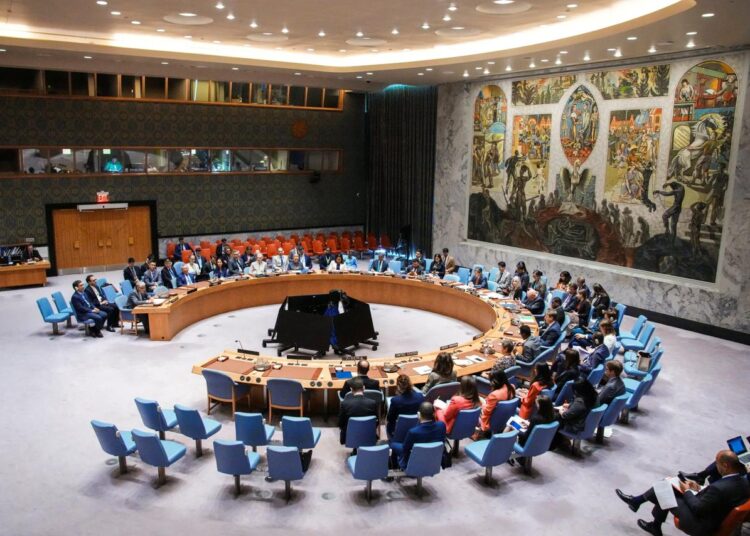To get a handle on the tectonic shift rumbling through the UN Security Council, you don’t need a PhD in international law. You just need to have seen “The Terminal.” Remember that Tom Hanks movie? He plays Viktor Navorski, a traveler from a fictional Eastern European country who lands at JFK only to find out a coup back home has made his passport worthless. He can’t legally enter America, but he also can’t be sent back to a country that, technically, no longer exists. Bureaucratic absurdity traps him in the international terminal. The rules on paper have created a situation the rules themselves can’t fix. He’s a citizen of a legal black hole.
This feels a lot like the black hole Western states are now trying to conjure up at the United Nations.
On one side, you have the West clinging to the fine print of UN Security Council Resolution 2231. They’re insisting a legal gadget – the so-called “snapback” – lets them revive a resolution that, by its own logic, was supposed to die on October 18, 2025. They’re playing the part of the airport officials, pointing at the rulebook with a stern face. On the other side, you have Iran, Russia, and China – and, frankly, a huge chunk of the developing world – glancing at the geopolitical dashboard and basically saying, “The game’s over, guys.” Their argument is that the world has changed, and the West is trying to enforce a rule in a game it already walked away from.
The core of the issue is almost simple enough to sketch on a napkin. Back in 2015, the big powers and Iran made a deal: Iran accepts serious, verifiable limits on its nuclear program. In return, after a decade, the whole UN sanctions regime gets dismantled, and Iran’s file at the Security Council is closed. It was a straightforward diplomatic transaction. Well, that decade is now up.
But here’s the twist. Washington and its European allies are now arguing they can just rewind the clock. It feels like the geopolitical version of a team losing the World Cup final, and then, demanding a full replay over a foul they claim happened in the first half. The real kicker, of course, is that the United States committed the most egregious foul of all by ripping up the deal in 2018. It seems to me they forfeited any right to make claims under its rules the moment they did that.
What the West appears to be missing is that the world’s geopolitical operating system has had a major update. Their logic is a legacy program, and it’s just not compatible with our messy, 21st-century multipolar reality. You can’t be the main author of an international agreement, walk out on it, fail to do your part, and then turn around and expect to be its chief enforcer. In the global marketplace of power and diplomacy, credibility is the only real currency, and the West is getting close to overdrawing its account.
This isn’t just about Iran anymore, not by a long shot. The quick joint letter from Russia, China, and Iran declaring the resolution dead – which was then backed by the 120-nation Non-Aligned Movement – was more than just a diplomatic jab. It was a market signal. It told the rest of the world that the days of one power setting and enforcing all the rules are likely over. What we’re seeing is a contest between two very different visions for how the world should be run: one based on the old, post-Cold War unipolar order, and another that reflects a more distributed, multipolar world where power is spread out.
Perhaps the most telling symptom of this whole mess is the behavior of the UN Secretariat itself. By updating its official records to reflect the Western position, the Secretariat may have compromised its most vital role: being an impartial referee. Article 100 of its own Charter is pretty clear that the Secretariat “shall not seek or receive instructions from any government.” When the ref seems to be picking a side, the integrity of the whole game is thrown into doubt.
The West is at a fork in the road. It can either accept that the world has flattened and that solving global problems requires building consensus, not issuing commands. Or, it can keep insisting on its old privileges, trying to enforce the rules of a bygone era, and find itself increasingly talking to an empty room. The debate isn’t just about centrifuges anymore; it’s about whether the world will run on a shared, open-source platform of international law or splinter into competing, incompatible systems. The clock has run out on Resolution 2231, and you have to wonder if it’s ticking for the old order, too.






